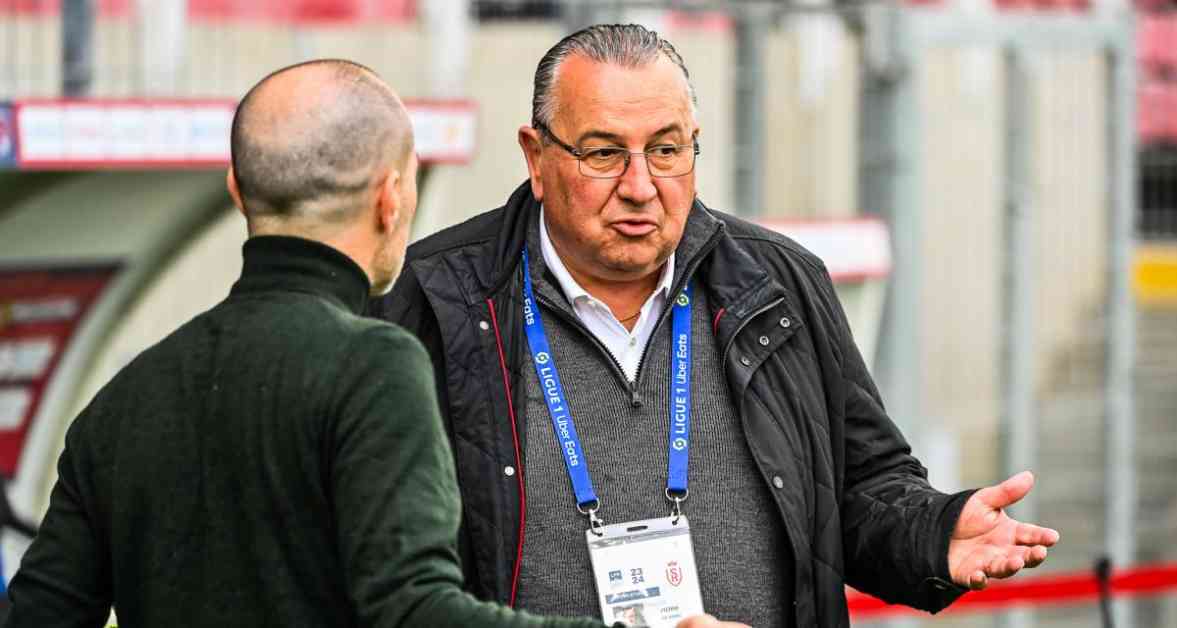**The Impact of Piracy and IPTV on the Economy: Insights from Jean-Pierre Caillot (Reims)**
**The Fight Against Piracy and IPTV in Football**
Jean-Pierre Caillot, President of Stade de Reims and a member of the administration committee of the Ligue de Football Professionnel (LFP), has taken a strong stance against piracy and IPTV in the football industry. With Vincent Labrune and the administration committee being re-elected on September 10th, the LFP is gearing up to combat the growing threat of illegal streaming and piracy that is affecting the football economy.
Caillot has labeled piracy and IPTV as a « scourge » that has the potential to undermine the economy of football. He believes that if left unchecked, these practices could have far-reaching consequences. The normalization of piracy in today’s society is a concerning trend, with even major platforms like DAZN facing issues of unauthorized streaming of their content. Caillot is adamant that strong actions need to be taken to address this issue before it spirals out of control.
**Challenges Faced by the Football Industry**
The fight against piracy and IPTV is not just a moral or ethical issue; it has significant economic implications for the football industry. Caillot highlights the need for a concerted effort to protect the revenue streams of clubs and leagues. The devaluation of the product due to perceptions of high costs and low quality is a real concern that needs to be addressed. By offering more attractive pricing options, the football industry can potentially combat piracy and retain its loyal fan base.
In a bid to incentivize legal streaming platforms like DAZN, Caillot mentions a bonus of 50 million euros that is promised to Ligue 1 clubs if DAZN reaches 1.5 million subscribers. This financial incentive demonstrates the importance of legitimate streaming services in the fight against piracy. By supporting these platforms, the football industry can ensure sustainable growth and revenue generation.
**Proposed Solutions and Strategies**
Caillot’s approach to tackling piracy and IPTV involves a multi-faceted strategy that includes revising subscription pricing, enhancing the quality of content, and promoting a positive image of the football product. By offering more competitive pricing, the industry can attract a wider audience and discourage illegal streaming practices. Additionally, investing in the production value of broadcasts and improving the overall fan experience can help differentiate legal streaming services from pirated sources.
Furthermore, Caillot emphasizes the importance of changing the narrative around football pricing. By highlighting the value and quality of the product, the industry can shift consumer perceptions and combat the notion that football is overpriced. This rebranding effort is crucial in attracting new audiences and retaining existing fans, ultimately strengthening the economic viability of the football industry.
**The Road Ahead**
As the football industry continues to grapple with the challenges posed by piracy and IPTV, it is clear that a collective effort is needed to combat this threat. With leaders like Jean-Pierre Caillot advocating for stronger measures and innovative strategies, there is hope for a brighter future for the industry. By prioritizing the protection of revenue streams, enhancing the fan experience, and promoting a positive image of football, the industry can overcome the challenges posed by illegal streaming and piracy.
In conclusion, the fight against piracy and IPTV in football is a complex and multifaceted issue that requires a united front from all stakeholders. By implementing strategic solutions, investing in quality content, and fostering a culture of respect for intellectual property rights, the football industry can safeguard its economic future and ensure sustainable growth in the digital age.

